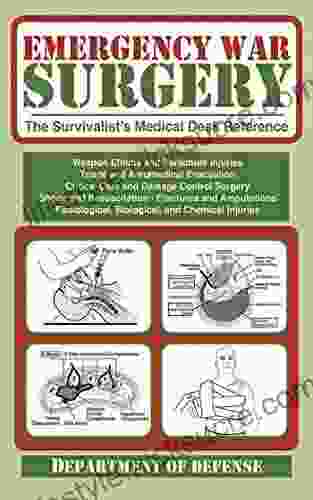The Why and How of Auditing: A Comprehensive Guide for Understanding the Importance and Process of Auditing

Auditing plays a vital role in ensuring the accuracy, reliability, and transparency of financial information. It is a systematic and independent examination of an organization's financial records and operations to provide assurance that they are in compliance with established standards. This article provides a comprehensive overview of the why and how of auditing, covering its importance, types, benefits, and step-by-step process.
Auditing is crucial for several reasons:
- Ensuring Financial Accuracy: Auditing helps verify the accuracy of financial statements, ensuring that they fairly represent an organization's financial position and performance. It detects errors, omissions, or fraud that could distort financial information.
- Providing Assurance to Stakeholders: Auditors provide independent assurance to stakeholders, such as shareholders, creditors, customers, and regulatory bodies, that the financial information they rely on is credible and reliable.
- Improving Internal Controls: Audit findings can identify weaknesses in an organization's internal controls, which are essential for safeguarding assets, preventing fraud, and ensuring efficient operations.
- Enhancing Management Decision-Making: Audits provide valuable insights into an organization's financial health and operations. This information can assist management in making informed decisions, identifying areas for improvement, and optimizing business processes.
- Legal and Regulatory Compliance: Many organizations are required by law or regulation to undergo regular audits. These audits play a key role in ensuring compliance with accounting standards, tax laws, and industry regulations.
There are various types of audits, each serving a specific purpose:
4.6 out of 5
| Language | : | English |
| File size | : | 5436 KB |
| Screen Reader | : | Supported |
| Print length | : | 158 pages |
| Lending | : | Enabled |
- Financial Statement Audit: Examines an organization's financial statements to express an opinion on their fairness and compliance with accounting standards.
- Compliance Audit: Assesses whether an organization is adhering to specific laws, regulations, or internal policies and procedures.
- Operational Audit: Evaluates an organization's operations, processes, and internal controls for efficiency, effectiveness, and alignment with business objectives.
- Performance Audit: Focuses on the efficiency and effectiveness of an organization's programs, activities, or functions.
- Investigative Audit: Conducted to investigate specific financial or operational matters, such as suspected fraud or irregularities.
Regular audits offer numerous benefits to organizations:
- Improved Financial Reporting: Audits ensure the accuracy and reliability of financial information, which is crucial for internal decision-making and external reporting.
- Enhanced Accountability: Auditing promotes accountability at all levels of an organization, making it more difficult to conceal financial irregularities or mismanagement.
- Fraud Prevention and Detection: Audits help prevent and detect fraud by identifying vulnerabilities in internal controls and providing assurance about the integrity of financial transactions.
- Process Optimization: Audit findings can reveal inefficiencies and weaknesses in operations, leading to recommendations for improvement and optimization.
- Increased Trust and Credibility: Positive audit reports enhance an organization's trust and credibility with stakeholders, including investors, lenders, and customers.
The auditing process typically involves the following steps:
1. Planning
- Determine the scope and objectives of the audit.
- Assess the organization's risk environment.
- Develop an audit plan outlining the approach, methodology, and timeline.
2. Risk Assessment
- Identify and assess the risks of material misstatement in the financial statements or other areas being audited.
- Evaluate the effectiveness of internal controls.
3. Testing and Analysis
- Conduct tests and procedures to verify the accuracy and reliability of financial information.
- Analyze data to identify potential errors, irregularities, or deviations from established standards.
4. Findings and Reporting
- Document audit findings in a comprehensive report.
- Describe the nature and extent of any deficiencies or recommendations for improvement.
- Issue an audit opinion or statement based on the audit findings.
5. Follow-up
- Monitor the organization's implementation of audit recommendations.
- Conduct follow-up audits as necessary to ensure that corrective actions have been taken and are effective.
Effective auditing requires adhering to certain principles and guidelines:
- Independence: Auditors should be independent of the organization being audited to ensure objectivity and impartiality.
- Professional Skepticism: Auditors must approach their work with a questioning mindset, critically evaluating evidence and questioning assumptions.
- Due Professional Care: Auditors must exercise due professional care, following established auditing standards and using appropriate procedures.
- Documentation: All audit findings, procedures, and s should be thoroughly documented.
- Continuous Improvement: Auditors should continually strive to improve their knowledge, skills, and methodologies to keep pace with evolving accounting and auditing standards.
Auditing is an indispensable practice that safeguards the integrity of financial information, promotes accountability, and enhances organizational effectiveness. By understanding the importance, types, benefits, and process of auditing, organizations can leverage its full potential to strengthen their financial reporting, improve internal controls, and make informed decisions. Effective auditing requires adherence to principles of independence, skepticism, due professional care, documentation, and continuous improvement. By embracing these principles, auditors play a critical role in ensuring the accuracy, reliability, and transparency of financial information, contributing to the overall health and success of organizations.
4.6 out of 5
| Language | : | English |
| File size | : | 5436 KB |
| Screen Reader | : | Supported |
| Print length | : | 158 pages |
| Lending | : | Enabled |
Do you want to contribute by writing guest posts on this blog?
Please contact us and send us a resume of previous articles that you have written.
 Fiction
Fiction Non Fiction
Non Fiction Romance
Romance Mystery
Mystery Thriller
Thriller SciFi
SciFi Fantasy
Fantasy Horror
Horror Biography
Biography Selfhelp
Selfhelp Business
Business History
History Classics
Classics Poetry
Poetry Childrens
Childrens Young Adult
Young Adult Educational
Educational Cooking
Cooking Travel
Travel Lifestyle
Lifestyle Spirituality
Spirituality Health
Health Fitness
Fitness Technology
Technology Science
Science Arts
Arts Crafts
Crafts DIY
DIY Gardening
Gardening Petcare
Petcare Nick Kolenda
Nick Kolenda Nisha Garg
Nisha Garg Jeffrey Steadman
Jeffrey Steadman Jeff Gaudette
Jeff Gaudette June Cl Tan
June Cl Tan Candy Verney
Candy Verney Dr Bob Rotella
Dr Bob Rotella Tamora Pierce
Tamora Pierce Nicholeen Peck
Nicholeen Peck Adam Cort
Adam Cort Amy Camp
Amy Camp Patricia L Papernow
Patricia L Papernow Harley Reid
Harley Reid Joseph Conrad
Joseph Conrad Amir Alexander
Amir Alexander Rob Fisher
Rob Fisher William Glasser M D
William Glasser M D Tim Hornbaker
Tim Hornbaker Cheri Rae
Cheri Rae Jack Ewing
Jack Ewing Trent Shelton
Trent Shelton Meikang Qiu
Meikang Qiu Garrett M Fitzmaurice
Garrett M Fitzmaurice Malba Tahan
Malba Tahan George Bernard Shaw
George Bernard Shaw Dan Schlossberg
Dan Schlossberg Wade Rouse
Wade Rouse Kristine Kathryn Rusch
Kristine Kathryn Rusch Stephen J Collier
Stephen J Collier Mark Worden
Mark Worden David Grinspoon
David Grinspoon Brendan Leonard
Brendan Leonard Donna Williams
Donna Williams Christina Kamp
Christina Kamp Krystal Sutherland
Krystal Sutherland Claudia J Carr
Claudia J Carr Mark Taylor
Mark Taylor Bethanne Kim
Bethanne Kim Heidi J Larson
Heidi J Larson Reinhold Messner
Reinhold Messner Joe Nickell
Joe Nickell Redmond O Hanlon
Redmond O Hanlon Dolores Kong
Dolores Kong Dana Obleman
Dana Obleman Nicholas A Christakis
Nicholas A Christakis American Baseball Coaches Association
American Baseball Coaches Association Amy B Middleman
Amy B Middleman Amber Lee Sellers
Amber Lee Sellers Glenn Stout
Glenn Stout Lisa Zimmer Hatch
Lisa Zimmer Hatch Robb Walsh
Robb Walsh Amber Smith
Amber Smith Rosanna Davison
Rosanna Davison Kumo Kagyu
Kumo Kagyu Shannon O Bourne
Shannon O Bourne Janet Engle
Janet Engle Jean Van T Hul
Jean Van T Hul Richard Wagamese
Richard Wagamese Alexandrea Weis
Alexandrea Weis Jonathan Law
Jonathan Law L Frank Baum
L Frank Baum Ruta Nonacs
Ruta Nonacs Jason Borte
Jason Borte Paul Graham
Paul Graham Randy Schultz
Randy Schultz Ned Seaton
Ned Seaton John Mcpherson
John Mcpherson Torey L Hayden
Torey L Hayden David Yoon
David Yoon Vicki Hearne
Vicki Hearne Erik Qualman
Erik Qualman Derrick Jensen
Derrick Jensen Pamela Lynn
Pamela Lynn Jack Freeman
Jack Freeman K M Shea
K M Shea Alex Stone
Alex Stone Kieron Gillen
Kieron Gillen Angela Moore
Angela Moore Catherine Ryan Gregory
Catherine Ryan Gregory Heather Macfadyen
Heather Macfadyen Deborah Lipsky
Deborah Lipsky Grant Dever
Grant Dever John Ferrell
John Ferrell Roman Gelperin
Roman Gelperin Amie Lands
Amie Lands Bill Carter
Bill Carter Temple Grandin
Temple Grandin Dr Elizabeth Cherevaty Nd Rac
Dr Elizabeth Cherevaty Nd Rac Thomas J Whalen
Thomas J Whalen Josephine Atluri
Josephine Atluri Amber Foster
Amber Foster Sarah Dessen
Sarah Dessen Jim Santos
Jim Santos Topher Donahue
Topher Donahue Andrey Ryanskiy
Andrey Ryanskiy Swede Burns
Swede Burns Isabella Krystynek
Isabella Krystynek Django Paris
Django Paris Byron Nelson
Byron Nelson Stephen Barr
Stephen Barr Cole Hersowitz
Cole Hersowitz Melody Schreiber
Melody Schreiber Amrita Pande
Amrita Pande Elizabeth S Gilbert
Elizabeth S Gilbert Carlo Buzzichelli
Carlo Buzzichelli Brian Klaas
Brian Klaas Amara Charles
Amara Charles Camille Glenn
Camille Glenn John Lukacs
John Lukacs Paul Kaplowitz
Paul Kaplowitz Sandra T Barnes
Sandra T Barnes Devin Olsen
Devin Olsen Julie Mosier
Julie Mosier Douglas Wilson
Douglas Wilson Deborah J Rumsey
Deborah J Rumsey Kate Parham Kordsmeier
Kate Parham Kordsmeier Pinky Mckay
Pinky Mckay Jacob Bronowski
Jacob Bronowski Jack Falla
Jack Falla James E Packer
James E Packer David Guymer
David Guymer Bruce Dowbiggin
Bruce Dowbiggin Gary Wiener
Gary Wiener Marina Robb
Marina Robb Eugenia Viti
Eugenia Viti Terry Wieland
Terry Wieland K F Breene
K F Breene Kenneth P Stephens
Kenneth P Stephens Sheena Johnstone
Sheena Johnstone Don Bowers
Don Bowers Jason Thompson
Jason Thompson Tyler Simmons
Tyler Simmons Arlene Blum
Arlene Blum Richard Cohen
Richard Cohen Dr Scott A Johnson
Dr Scott A Johnson Jack Nisbet
Jack Nisbet Jameson M Wetmore
Jameson M Wetmore Jack Weatherford
Jack Weatherford Pico Iyer
Pico Iyer Kate Fox
Kate Fox Peter Larson
Peter Larson Dima Zales
Dima Zales David Ranney
David Ranney Ellie Wood
Ellie Wood Ken Chaddock
Ken Chaddock John Jacobs
John Jacobs Michael Reichert
Michael Reichert Amelia Parker
Amelia Parker Jessica Hatcher Moore
Jessica Hatcher Moore Mike Adamick
Mike Adamick Andy Couturier
Andy Couturier Don Stradley
Don Stradley Helen E Fisher
Helen E Fisher Kathleen Glasgow
Kathleen Glasgow Cathy Williams
Cathy Williams Mariano Anaya
Mariano Anaya Amelia Edith Huddleston Barr
Amelia Edith Huddleston Barr Jeremy J Baumberg
Jeremy J Baumberg Jennifer Margulis
Jennifer Margulis Tracy Lorraine
Tracy Lorraine William Rosen
William Rosen Charles J Alsheimer
Charles J Alsheimer Philippa Langley
Philippa Langley Timothy Malcolm
Timothy Malcolm Jan Marie Mueller
Jan Marie Mueller P Aarne Vesilind
P Aarne Vesilind Erika Napoletano
Erika Napoletano Kathy Spratt
Kathy Spratt Suzanne Stabile
Suzanne Stabile Peter Hayes
Peter Hayes Kris Leonard
Kris Leonard Deborah Vinall Psyd Lmft
Deborah Vinall Psyd Lmft Lizabeth Hardman
Lizabeth Hardman Ignatius Donnelly
Ignatius Donnelly Kathleen M Stacy
Kathleen M Stacy Paul Oliver
Paul Oliver Summer Michaud Skog
Summer Michaud Skog Susanna Heli
Susanna Heli Chris Carlsson
Chris Carlsson Joseph Klaits
Joseph Klaits Sean Gibson
Sean Gibson Tom Patri
Tom Patri Pav Bryan
Pav Bryan Amber Lia
Amber Lia Warren B Powell
Warren B Powell Gail Maccoll
Gail Maccoll Leslie Sansone
Leslie Sansone Amelia Freer
Amelia Freer Courtney Defeo
Courtney Defeo Joe E Harvey
Joe E Harvey Jonathon Miller Weisberger
Jonathon Miller Weisberger Shanna Cunning
Shanna Cunning Joseph Mcmoneagle
Joseph Mcmoneagle Brian Kateman
Brian Kateman Josh Taylor
Josh Taylor Martin Williams
Martin Williams Dan Abnett
Dan Abnett Cynthia Gabriel
Cynthia Gabriel C W Lockhart
C W Lockhart Elizabeth Lim
Elizabeth Lim James P Kelly
James P Kelly Andy Hunt
Andy Hunt Julie Barlow
Julie Barlow Wolf Moon
Wolf Moon Tavi Gevinson
Tavi Gevinson Catherine Dees
Catherine Dees Jean Christie Ashmore
Jean Christie Ashmore Kathy A Zahler
Kathy A Zahler Johan Norberg
Johan Norberg Sterling Test Prep
Sterling Test Prep Marco Ferrero
Marco Ferrero Joseph P Weir
Joseph P Weir Susan White
Susan White Gina Chen
Gina Chen Anna B Doe
Anna B Doe Denise Ni
Denise Ni Ray Mancini
Ray Mancini Joellen Patterson
Joellen Patterson Paul Dickson
Paul Dickson John Maxwell Wood
John Maxwell Wood Eugene C Toy
Eugene C Toy Stephen Walker
Stephen Walker Julie Schacht Sway
Julie Schacht Sway Jonathan Bartlett
Jonathan Bartlett Sarah Sumbal
Sarah Sumbal Benjamin Jelen
Benjamin Jelen Amber Zygutis
Amber Zygutis J Stephen Jones
J Stephen Jones Jake Maddox
Jake Maddox Rose Mannering
Rose Mannering Vince Kotchian
Vince Kotchian Stephen Goodwin
Stephen Goodwin Jessica Cunsolo
Jessica Cunsolo Steven Charleston
Steven Charleston Md Rezowan Ahmed
Md Rezowan Ahmed Michaela Riva Gaaserud
Michaela Riva Gaaserud Philip Gibson
Philip Gibson Fred Pyrczak
Fred Pyrczak Joseph Wayne Smith
Joseph Wayne Smith Ashley Scott
Ashley Scott Frederick Lenz
Frederick Lenz Amiee Mueller
Amiee Mueller Stanley I Greenspan
Stanley I Greenspan Michael Ondaatje
Michael Ondaatje Ned Vizzini
Ned Vizzini Charles Thompson
Charles Thompson Bridget Ericsson
Bridget Ericsson Brian Pace
Brian Pace Josiah Hesse
Josiah Hesse William Stillman
William Stillman Frank Nappi
Frank Nappi Muhammad Vandestra
Muhammad Vandestra Victor J Stenger
Victor J Stenger Randall E Schumacker
Randall E Schumacker Sharon K Zumbrunn
Sharon K Zumbrunn Antonio R Damasio
Antonio R Damasio Trevor Day
Trevor Day Lars Andersen
Lars Andersen Larry K Brendtro
Larry K Brendtro Hadley Wickham
Hadley Wickham Oscar Baechler
Oscar Baechler Ryan Gray
Ryan Gray Amante P Marinas
Amante P Marinas David Salsburg
David Salsburg Martin Pollizotto
Martin Pollizotto Sheri Van Dijk
Sheri Van Dijk Amy Brown
Amy Brown Michelle Newhart
Michelle Newhart Tabitha Suzuma
Tabitha Suzuma David Burch
David Burch J Marin Younker
J Marin Younker Rob Antoun
Rob Antoun Holly Herrick
Holly Herrick Steve Greenberg
Steve Greenberg Kresley Cole
Kresley Cole Chad Ford
Chad Ford Sarah Woodbury
Sarah Woodbury Shalabh Aggarwal
Shalabh Aggarwal Craig Larman
Craig Larman Tom Deck
Tom Deck American Math Academy
American Math Academy Amit Saha
Amit Saha Christopher Harlan
Christopher Harlan Sarah J Maas
Sarah J Maas Valerie Bass
Valerie Bass Matthew L Martin
Matthew L Martin Theresa Y Wee M D
Theresa Y Wee M D Peter Worley
Peter Worley Erica T Lehrer
Erica T Lehrer Emma Mae Jenkins
Emma Mae Jenkins Stephenie Meyer
Stephenie Meyer Gerald Corey
Gerald Corey Sue Monk Kidd
Sue Monk Kidd Chris Irons
Chris Irons David Elkington
David Elkington Jon Bonnell
Jon Bonnell Don Mann
Don Mann Neville Goddard
Neville Goddard Jenny Landreth
Jenny Landreth Marshall Goldsmith
Marshall Goldsmith Paul Wieland
Paul Wieland Jenni Hicks
Jenni Hicks Nikhil Bhardwaj
Nikhil Bhardwaj Amy Bizzarri
Amy Bizzarri Laura Slinn
Laura Slinn Jocelyn Goodwin
Jocelyn Goodwin Tim Marshall
Tim Marshall Silvia Botros
Silvia Botros Cordelia K Castel
Cordelia K Castel Marisa Anne Bass
Marisa Anne Bass Dom Amore
Dom Amore Amy Adele Hasinoff
Amy Adele Hasinoff The 60 Minutes Summary
The 60 Minutes Summary Ronda Rousey
Ronda Rousey Patrick O Sullivan
Patrick O Sullivan H Bedford Jones
H Bedford Jones Christine Fanthome
Christine Fanthome James Mullaney
James Mullaney Amy Baldwin
Amy BaldwinK D
 Joe Dan Lowry
Joe Dan Lowry Doug Peterson
Doug Peterson Jan E Stets
Jan E Stets Amy Blakeslee
Amy Blakeslee Sian Warriner
Sian Warriner Laini Taylor
Laini Taylor Rachel Gurevich
Rachel Gurevich Vivian Vande Velde
Vivian Vande Velde Amber O Neal Johnston
Amber O Neal Johnston Chloe Gong
Chloe Gong Brittany Clair
Brittany Clair Jayson Gaddis
Jayson Gaddis Edward J Denecke
Edward J Denecke Ruth M Tappen
Ruth M Tappen Eric Tyndall
Eric Tyndall Chad Starkey
Chad Starkey Liz Fosslien
Liz Fosslien Joseph Howse
Joseph Howse Mark W T Harvey
Mark W T Harvey Md Mahady Hasan
Md Mahady Hasan Stanley J Farlow
Stanley J Farlow Theodore Sider
Theodore Sider Alan Margot
Alan Margot Sandra Bardwell
Sandra Bardwell Gal Dem
Gal Dem Spike Dykes
Spike Dykes Ana And Jack Hicks
Ana And Jack Hicks E T Bryant
E T Bryant Guillaume Haeringer
Guillaume Haeringer John Bingham
John Bingham Henry A Zumbrun 2
Henry A Zumbrun 2 Wendy Margolis
Wendy Margolis Jd Mader
Jd Mader Amira Mikhail
Amira Mikhail Nina Freudenberger
Nina Freudenberger Art Star
Art Star C L Simchick
C L Simchick Autumn Jordon
Autumn Jordon Amy Perry
Amy Perry Kezia Endsley
Kezia Endsley Matthew Lombardi
Matthew Lombardi Dave Hanson
Dave Hanson Derek Thompson
Derek Thompson Jennifer S Kelly
Jennifer S Kelly Julie Caplin
Julie Caplin Rodney M Howard Browne
Rodney M Howard Browne Anne Chambers
Anne Chambers Mark Turley
Mark Turley Tanya Turner
Tanya Turner Zeshan Qureshi
Zeshan Qureshi Rick Stanton
Rick Stanton Louise Bates Ames
Louise Bates Ames Vinod Kumar Khanna
Vinod Kumar Khanna Candida Lawrence
Candida Lawrence Jeff Martone
Jeff Martone William G Dever
William G Dever Charles Hall
Charles Hall Nathan Belofsky
Nathan Belofsky Therese A Rando
Therese A Rando Karen Deerwester
Karen Deerwester James W Williams
James W Williams Steven C Hayes
Steven C Hayes Tijan
Tijan Eric Zweig
Eric Zweig Jeanne Ryan
Jeanne Ryan Michael Winkelman
Michael Winkelman Katherine Kurtz
Katherine Kurtz Mitt Romney
Mitt Romney Michael Cosgrove
Michael Cosgrove Kyle Hunt
Kyle Hunt Kate Tietje
Kate Tietje Amby Cooper
Amby Cooper Eric T Knight
Eric T Knight Howard J Meditz
Howard J Meditz Jerry D Moore
Jerry D Moore John L Field
John L Field Thom Hartmann
Thom Hartmann Rich Rousseau
Rich Rousseau Tom Taulli
Tom Taulli Joe Dante
Joe Dante Victoria Richards
Victoria Richards Robert Melillo
Robert Melillo Andy Singleton
Andy Singleton Robert W D Ball
Robert W D Ball Ananda Lowe
Ananda Lowe Michael R Poll
Michael R Poll Robyn Davidson
Robyn Davidson Norman Doidge
Norman Doidge Anthony Horowitz
Anthony Horowitz Mac Fortner
Mac Fortner Amie Kaufman
Amie Kaufman Sonia Hartl
Sonia Hartl Umer W
Umer W Sean Go
Sean Go Jack Tupp
Jack Tupp Tahlia Kirk
Tahlia Kirk Joel Cotton
Joel Cotton Clotaire Rapaille
Clotaire Rapaille Elise Christie
Elise Christie J L Weil
J L Weil Lady Antiva
Lady Antiva American Psychological Association
American Psychological Association Shere Hite
Shere Hite Laurie A Watkins
Laurie A Watkins Victoria Wood
Victoria Wood Joan Freeman
Joan Freeman Iain Pardoe
Iain Pardoe Alan I Marcus
Alan I Marcus Traci Gormley
Traci Gormley Anthony Haynes
Anthony Haynes Kasie West
Kasie West Alex Polyakov
Alex Polyakov Rick Deutsch
Rick Deutsch Mark Stallard
Mark Stallard Ruth Nestvold
Ruth Nestvold Nikala Smith
Nikala Smith Theresa I Soto
Theresa I Soto John A Buehrens
John A Buehrens Clancy Cavnar
Clancy Cavnar Rosalind Wiseman
Rosalind Wiseman Desi Northup
Desi Northup Diane Greer
Diane Greer Dmv Test Bank
Dmv Test Bank A Sorority Of Mothers
A Sorority Of Mothers Maria Youtman
Maria Youtman Cody Monk
Cody Monk Toni Tone
Toni Tone Christopher Cousteau
Christopher Cousteau Buck Tilton
Buck Tilton Lisa Maloney
Lisa Maloney Donovan Hohn
Donovan Hohn Michael Abayomi
Michael Abayomi Michael Parker Pearson
Michael Parker Pearson Don Orwell
Don Orwell Erin Chack
Erin Chack Laekan Zea Kemp
Laekan Zea Kemp Test Masters
Test Masters Gia Giasullo
Gia Giasullo Saleh Alkhalifa
Saleh Alkhalifa Sarah Morgan Haydock
Sarah Morgan Haydock Danny Dreyer
Danny Dreyer Tom Colicchio
Tom Colicchio Amy Mccready
Amy Mccready Naomi Oreskes
Naomi Oreskes William Bohan
William Bohan Eric E Bowne
Eric E Bowne Helena P Blavasky
Helena P Blavasky Robert A Weinberg
Robert A Weinberg Sandra Luna Mccune
Sandra Luna Mccune Shaun Gallagher
Shaun Gallagher Paul Kockelman
Paul Kockelman Kevin Stiegelmaier
Kevin Stiegelmaier Christopher E Larsen
Christopher E Larsen Stephen M Barr
Stephen M Barr Cookie O Gorman
Cookie O Gorman Jean Rose
Jean Rose Paul Schwartz
Paul Schwartz Marit Weisenberg
Marit Weisenberg Amy Bleuel
Amy Bleuel
Light bulbAdvertise smarter! Our strategic ad space ensures maximum exposure. Reserve your spot today!

 Lee SimmonsUnveiling the Secrets of The Lady Tasting Tea: A Scientific Curiosity with a...
Lee SimmonsUnveiling the Secrets of The Lady Tasting Tea: A Scientific Curiosity with a...
 Banana YoshimotoUnveiling the Extraordinary Life and Legacy of "How Played the Game: An...
Banana YoshimotoUnveiling the Extraordinary Life and Legacy of "How Played the Game: An... Derrick HughesFollow ·14k
Derrick HughesFollow ·14k Devin RossFollow ·16.9k
Devin RossFollow ·16.9k Ron BlairFollow ·12.5k
Ron BlairFollow ·12.5k Morris CarterFollow ·16.2k
Morris CarterFollow ·16.2k Jerome BlairFollow ·2.6k
Jerome BlairFollow ·2.6k Asher BellFollow ·6.5k
Asher BellFollow ·6.5k George HayesFollow ·4.6k
George HayesFollow ·4.6k Dalton FosterFollow ·16.2k
Dalton FosterFollow ·16.2k

 Ira Cox
Ira CoxUnveiling the Hidden Gem: Moon, Virginia - A Washington...
Nestled within the picturesque...

 Jorge Luis Borges
Jorge Luis BorgesThe Ultimate Survivalist's Medical Guide: A Comprehensive...
In the realm of...

 Henry Green
Henry GreenDavid Douglas: Exploring the Natural History of the...
David Douglas was a...

 Eric Hayes
Eric HayesUnderstanding Citizenship in a Globalized World: A...
Citizenship is a complex and multifaceted...

 Will Ward
Will WardUnveiling Research Real Talk: Navigating the Labyrinth of...
Research, the...
4.6 out of 5
| Language | : | English |
| File size | : | 5436 KB |
| Screen Reader | : | Supported |
| Print length | : | 158 pages |
| Lending | : | Enabled |










